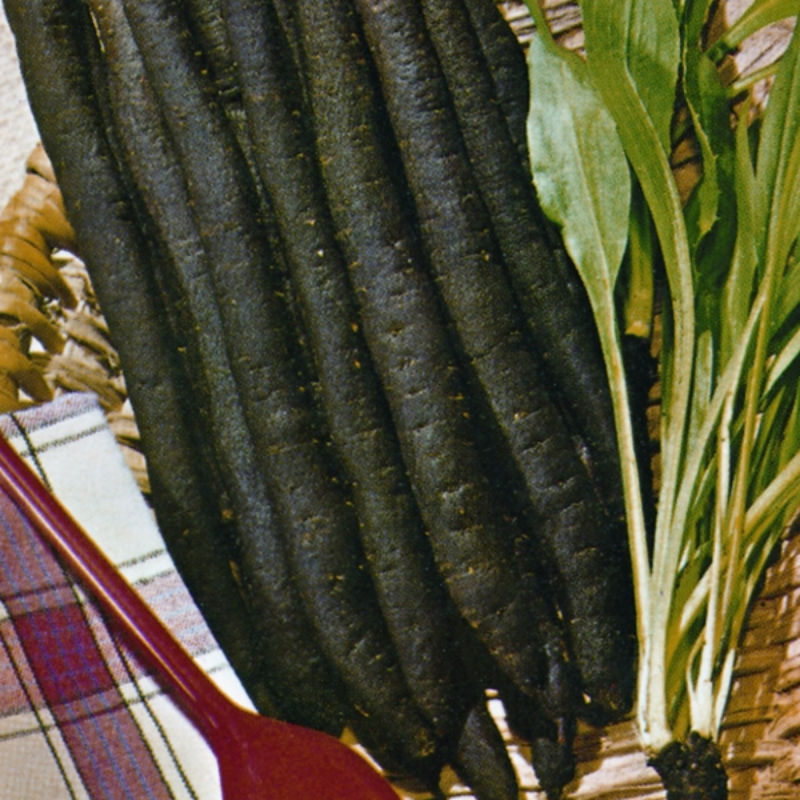- Species and varieties: Black carrots (Daucus carota subsp. sativus) are a unique variety of carrot known for their deep purple to black color. They belong to the Apiaceae family and are rich in anthocyanins, which give them their distinctive color. Popular varieties include 'Pusa Asita' and 'Cosmic Purple'.
- Hybrid or heirloom: Black carrot seeds can be found in both hybrid and heirloom varieties. Heirloom varieties are often preferred for their rich flavor and historical significance, while hybrid varieties may offer improved disease resistance and uniformity.
- Pruning and training: Black carrots do not require pruning or training. However, thinning seedlings to 2-3 inches apart is essential to ensure proper root development and prevent overcrowding.
- Fertilization needs: Black carrots benefit from a balanced fertilizer applied at planting time. A 10-10-10 (N-P-K) fertilizer is recommended. Avoid high nitrogen fertilizers, as they can lead to excessive foliage growth at the expense of root development. Side-dress with compost or a balanced fertilizer midway through the growing season for optimal growth.
- Hardiness zones: Black carrots can be grown in USDA hardiness zones 3-10. They are quite adaptable and can thrive in a range of climates.
- Climate requirements: Black carrots prefer a cool to moderate climate. They grow best in temperatures between 55°F and 75°F (13°C to 24°C). They require full sun to partial shade and well-drained, loose soil with a pH between 6.0 and 6.8.




